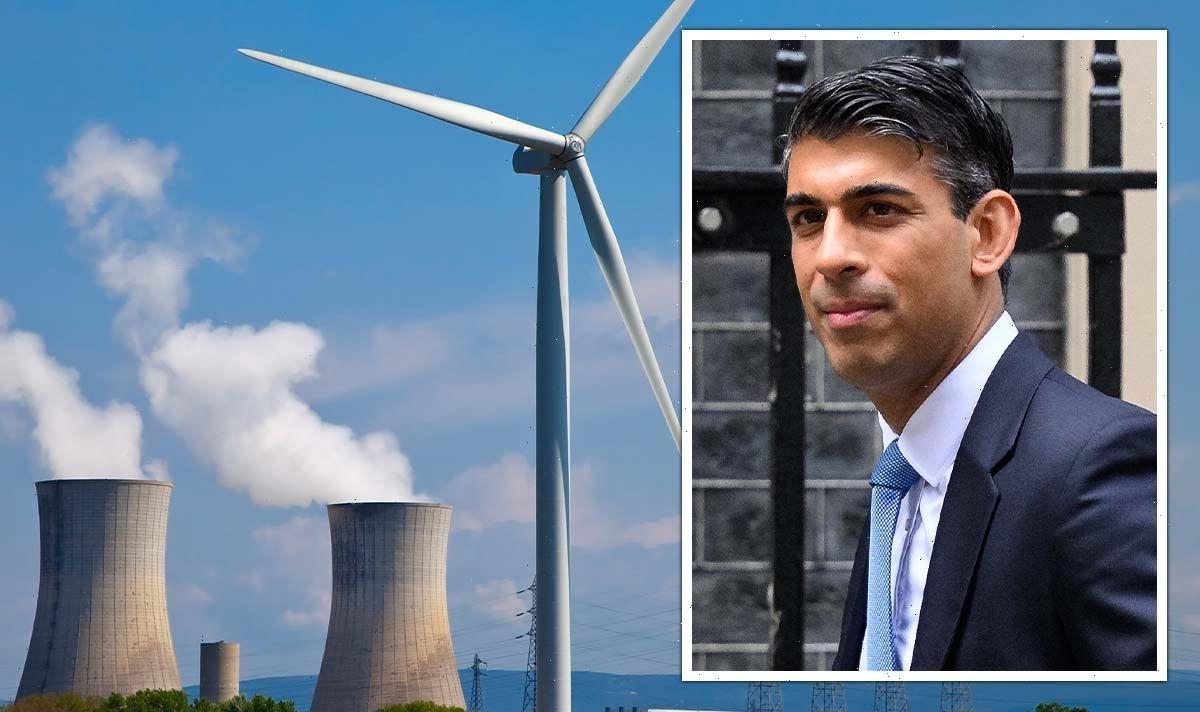Treasury 'softening up' on windfall tax position says Cohen
We use your sign-up to provide content in ways you’ve consented to and to improve our understanding of you. This may include adverts from us and 3rd parties based on our understanding. You can unsubscribe at any time. More info
In May, Mr Sunak announced a £5billion windfall tax on energy companies that have seen sky-high profits while consumers continue to fork out extra cash to pay their bills. As part of his “significant set of interventions”, the Chancellor said he would introduce a “temporary, targeted energy profits levy”. Mr Sunak said: “The oil and gas sector is making extraordinary profits, not as the result of recent changes to risk-taking or innovation or efficiency, but as the result of surging global commodity prices driven in part by Russia’s war.”
The Chancellor said the profits levy would be 25 percent, with a 90 percent tax relief for firms that invest in oil and gas extraction in Britain.
But while Mr Sunak had previously suggested that the levy would include all profits made from electricity generation, regardless of the source that generates it, he appears to have changed his tone.
Now, it appears that electricity generated by wind farms and power plants will be able to dodge that levy.
It comes after Government insiders claimed that oil and gas producers were only “only half the picture” as other companies had still seen profits soar amid the Ukraine invasion as energy costs skyrocket.
By limiting the new tax to profits yielded from electricity generated by gas and coal, the Whitehall source said this would avoid “impacting sectors of the economy where we need hundreds of billions of pounds of investment”.


But energy experts pointed out there was no reason why future investment in renewables should suffer, particularly when the country is trying to phase out fossil fuels and reach net zero emissions by 2050.
The boss of one of Britain’s biggest investors in renewables said his profits from renewable energy generation were in the low hundreds of millions for a whole year.
Meanwhile, Shell made £7billion and BP made £5billion in the first three months of 2022 alone.
He told the BBC: “Going after renewables is total and utter nonsense.”
This also comes after Mr Sunak’s windfall plans were hit with waves of criticism from across the board.

Christine Jardine, the Liberal Democrat Treasury spokesperson claimed that 25 percent tax would allow companies to carry on “with business as usual”.
She said: “It’s bad enough that the chancellor waited until the 11th hour to tax big oil and gas, when Liberal Democrats first called for a windfall tax last October.
“Now it looks like it may not even raise what he said it will. That’s more levy lite than windfall tax.”
She added: “He chose to leave billions on the table that could have been used for support while slamming families with unfair tax hikes instead.
“It goes to show how out of touch he and the Conservatives are with people that are suffering.”
DON’T MISS
Biden humiliated as Russia and Iran strikes major 20-year energy deal [INSIGHT]
The NATO weapon that Putin ‘really fears’ [REVEAL]
Spain’s ‘alternative plan’ to cause ‘substantial damage’ to Putin [REPORT]


On the other side of the spectrum, Craig Mackinlay, who chairs the Net Zero Scrutiny Group of Tory backbenchers, called any type of windfall tax “just wrong”.
He said: “Any windfall tax on the broader energy industry, no matter the type of production, is just wrong.
“At a time of energy shortage and demands being made to extract more North Sea oil and gas and invest in net zero, additional tax will simply deter investment. Additional tax can never reduce prices, and I’m surprised such a basic economic concept is now lost on the Treasury.”
Source: Read Full Article
